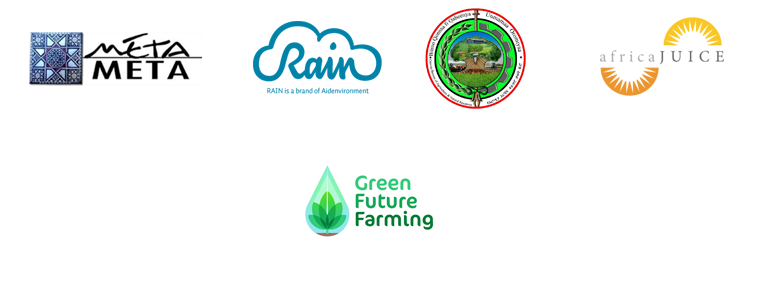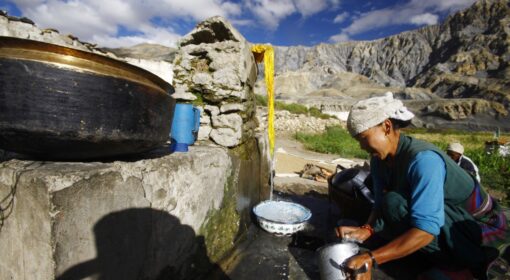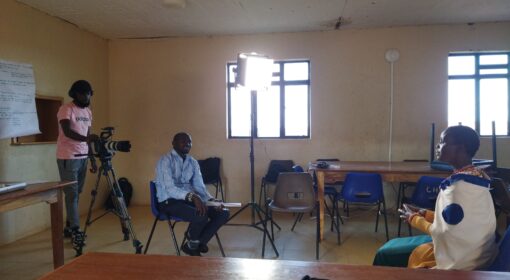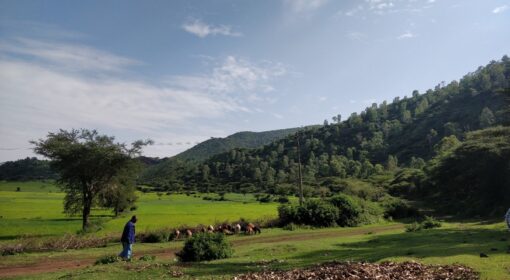(The case of GFF/FMO projects and AfricaJuice in Middle Awash, Oromia, Ethiopia)
by Jean Marc Pace (MetaMeta Research), Girma Senbata (MetaMeta Research), and Rommert Schram (RAIN/ Aid Environment)
In our projects, it is unquestionable that working with partners adds value in many ways. It provides additional resources, expertise and experiences. Working with partners can also streamline scaling-up processes and embed practices and innovations at the grassroot level. MetaMeta has long and wide range of experiences in working through private and public partnerships in implementation of different projects. Source to Tap and Back (S2TAB), Ecologically Based Rodent Management (EBRM), Green Road for Water (GR4W), and many other projects in Ethiopia are among the projects implemented in this way. Each partner also adds to the mix their own context, relationships, and value sets – some cases require a bit more mediation than others to find a synergistic way forward.
In a similar manner, MetaMeta together with AidEnvironment is implementing the Green Future Farming Project (GFF – funded by IKEA Foundation) and the AfricaJuice Integrated Water Resources Management (IWRM) Project (funded by FMO) in Middle Awash, Oromia Region. In light of this, this blog presents the experience of working towards synergies between a private company – AfricaJuice (AJ), and the surrounding local communities of the Middle Awash area.
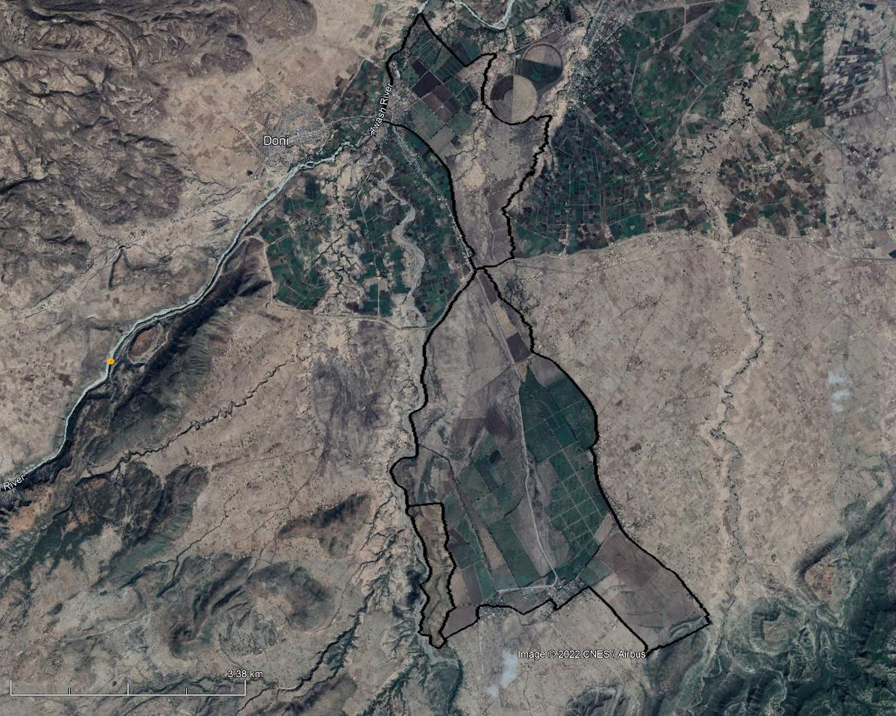
Since 2009, AJ operates two farms in Ethiopia spanning a 1,779 ha, cultivating a range of fruit crops such as passion fruit, citrus, papaya and mango. The three farms are located in Middle Awash (Degaga and Menbere Hiwot /Tefiste Genet) along the Awash River. Since AJ’s establishment, tensions arose regularly between the AJ and the local communities, straining the relationship and culminating in an attack on AJ’s compound in 2018. In this attack AJ lost a lot of valuable equipment and property, spurring them on to take steps in improving their relationship with their neighbours. The following year, in 2019 Aid Environment and MetaMeta took on the assignment to assess the socio-political relationship between AJ and the surrounding community and to propose a sustainable and win-win way forward. This assignment allowed us to dig deep into the challenges and opportunities that lie in the complex situation.
The study uncovered that the main reasons for the tensions between the communities and AJ were:
- Water: AJ was competing with the local farmers for scarce water available through irrigation schemes. The Tibila irrigation Scheme was developed for use by the local community, but AJ was also allocated water user rights though an agreement made with OWWCE1;
- Dissatisfaction from unfulfilled commitments: AJ promised to deliver social responsibility by supporting community access to drinking water, schooling and health services. AJ was also expected to provide job opportunities, prioritizing gainful employment for local jobless youth. While AJ implemented many of these commitments to varying degrees, the communities remained unsatisfied.
- Hostile posturing: AJ was assigned a contingent from the national defence force to protect their compound from further attacks (most other similar private companies in the area rely on their local communities for this). The deployment of the national defence force served to worsen the relationship between the AJ and the communities.
The attitude towards AJ by the communities at this point in time was negative and could be categorized as hostile. This hostility was experienced first-hand during the first field visit where our team was prevented from conducting our research in the area as the community believed we were working for AJ – this was eventually resolved with the backing of the local government administration. On the other hand, however, we also observed that the community did see positive opportunities and advantages such a large private company could deliver, if they would only be respected and treated fairly.
To work towards a win-win, sustainable solution for both AJ and the community, MetaMeta and AidEnvironment formulated 2 parallel projects to be jointly implemented and serve both the community and the company. This led to the conception of both the AfricaJuice IWRM project and the GFF project. The main objectives of the projects are to: engage many subsistence farmers in higher value production; engage women and youth in agri-services (job creation), and use the presence of investors as a lever for value addition – thereby improving the status of the local community and creating a sense of goodwill between the two parties so they can work together to improve their environment and watersheds, and sustainable prospects for the future.
At the heart of achieving these objectives is watershed restoration, regreening, and management (i.e. 3R and landscape management) of potential irrigation water sources i.e. Biskelo and Worenso Rivers (tributaries of the Awash). This is the most effective way to ensure more water and a long-term, sustainable water supply for the community and the company. Improving irrigation water efficiency; improving soil health; introducing new techniques for water harvesting and water saving technologies are also among the main activities planned to achieve the anticipated outcomes.
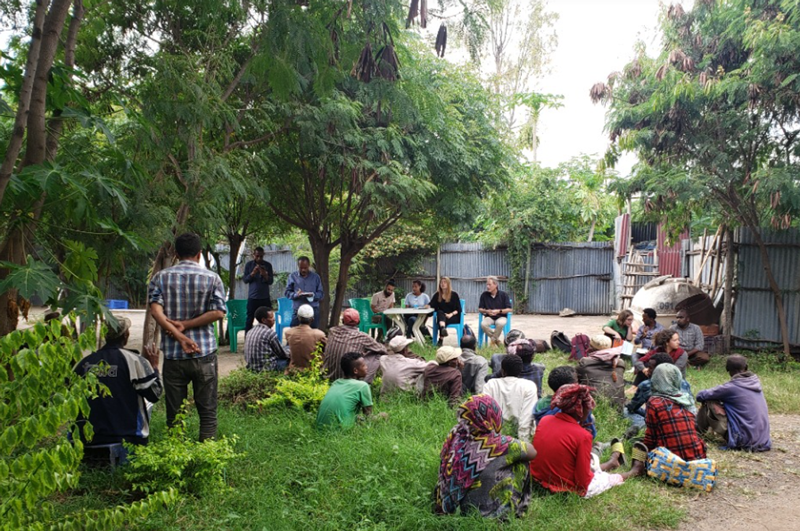
Persevering through the initial resistance and challenges from the community’s side we found our path towards addressing the community grievances. After several consultations, community engagement sessions, and some delicate mediation between all stakeholders (AJ, the community (including elders and religious leaders), local Kebele and Woreda administration, and the Oromia Bureau of Agriculture), the current relationship between AJ and the community is greatly improved. There is still a lot of work and trust-building to be done for better collaboration, but strides have been made. The company is playing a significant role in the implementation of these projects in partnership with MetaMeta, AidEnvironment and Oromia Bureau of Agriculture. The company is investing a significant amount of resources in terms of finance, logistical support, and mobilization of its labourers particularly in the construction of check dams for the soil and water conservation of the two watersheds. Beside these, the company is willing to jointly develop irrigation schemes on the Biskelo River for the benefit of the company and the local community. AJ has also shown interest to share its experience (particularly on crop management), provide papaya seedlings, technology transfer, and linking local farmers with potential market access through their own market channels (based on the farmers’ interest). Above all, AfricaJuice has transferred about 30ha of its own land to jobless youth to run it as commercial community farm after the intended irrigation schemes are developed. Currently, the study and design work of the irrigation scheme on Biskelo River is at the verge of completion, as is the water sharing agreement between AJ and the community.
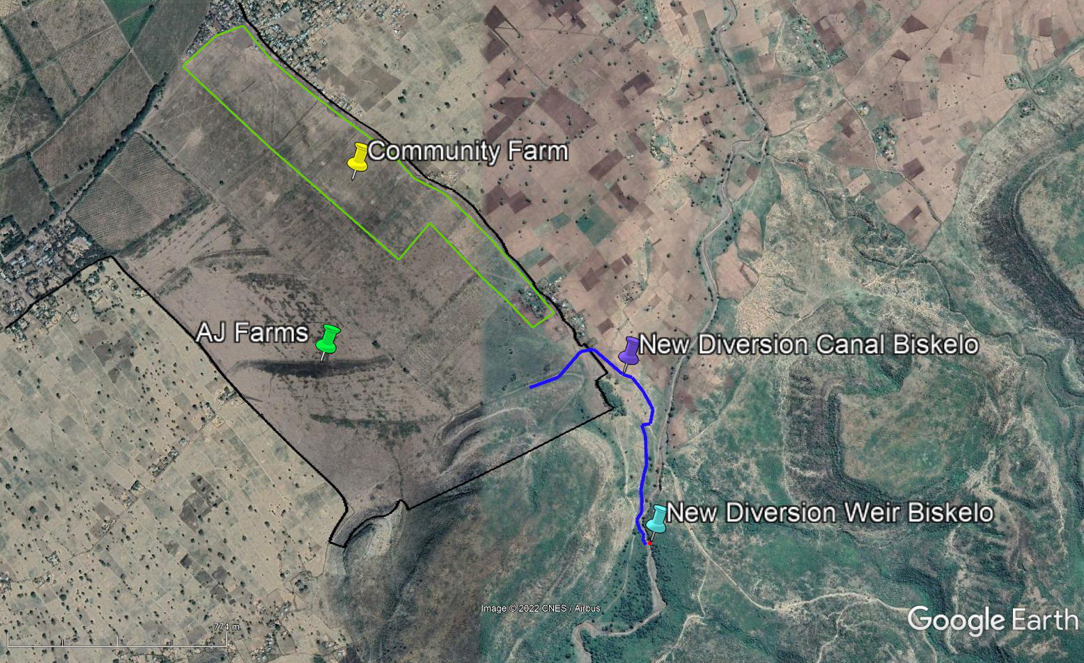
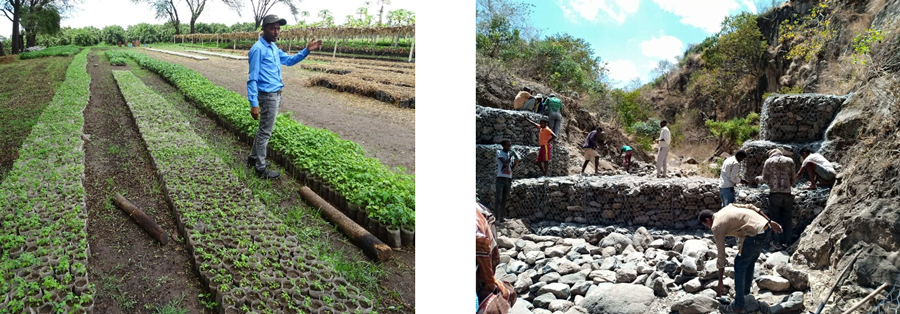
Regardless of all the challenges (which are usually expected in such cases), the lesson we can draw here is that private sector can play a critical role in developing water resources benefitting both the communities and the private sector. There are many similar private sector actors who are in positions to assist similar developments in the nearby areas and beyond. The presence of many private sector actors, who are benefiting from water sources derived from different watersheds can be taken as an opportunity to leverage the limited government budget to address the multifaceted problems of water availability. In addition to the contribution of enhancing natural resources management, such interventions can create ample job opportunities for a significant number of people. Critically however, this can and should lead to a conducive environment for landscape restoration and improvement between local communities and the private sector.
This reminds me of an African proverb: “Alone, you can go faster; Together you can go further.”
Thus, with this understanding of the many opportunities that arise when working with private-public partnerships we will continue promoting similar approaches to implement government and donor-financed programs such as CALM and PSNP in the not-too-distant future.
